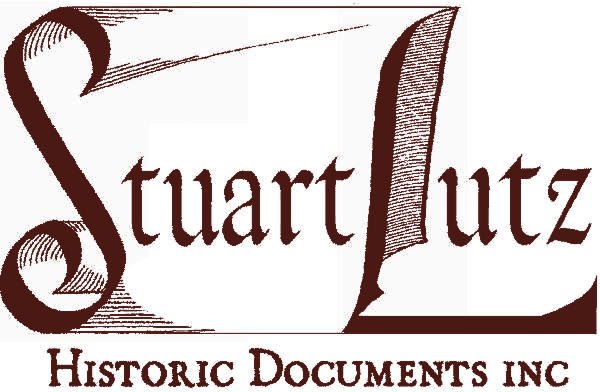| |
 CALVIN COOLIDGE CALVIN COOLIDGE |
|
|
|
|
| |
Price: $450.00 |
Stock# 4879 |
| |
PRESIDENT COOLIDGE TURNS DOWN AN HONORARY POSITION ON A CHARITY COUNCIL, THE AMERICAN INSTITUTE OF OPERATIC AND ALLIED ARTS
CALVIN COOLIDGE (1872-1933). Coolidge was the Thirtieth President.
TLS. 1pg. February 18, 1925. The White House, Washington. A typed letter signed “Calvin Coolidge” as President on “The White House” letterhead. Coolidge wrote to Mrs. John D. Sherman, President of the General Federation of Women’s Clubs, turning down an honorary position: “Your letter of the 13th instant affords me an opportunity of which I am glad to avail myself, to express once more my convictions as to the usefulness and fine idealism which are embodied in the program of the American Institute of Operatic and Allied Arts. Convinced that it represents a thoroughly unselfish contribution in the important field of national culture, I have been glad to note the strong support which has been given to it by the General Federation of Women’s Clubs. In view of these sentiments, and of your earnest invitation, on behalf of the General Federation, I regret that I cannot accept the post of Honorary President of the National Advisory Council. I am compelled, of course, by the demands of other duties upon my time to restrict my privilege of outside service; but I am glad to give this testimony of interest and encouragement to so worthy a movement.”. The letter is in very good condition with a rust stain from a paperclip, light soiling and it is mounted to a larger sheet. Coolidge’s signature is a bit choppy due to an evident pen failure. |
4879
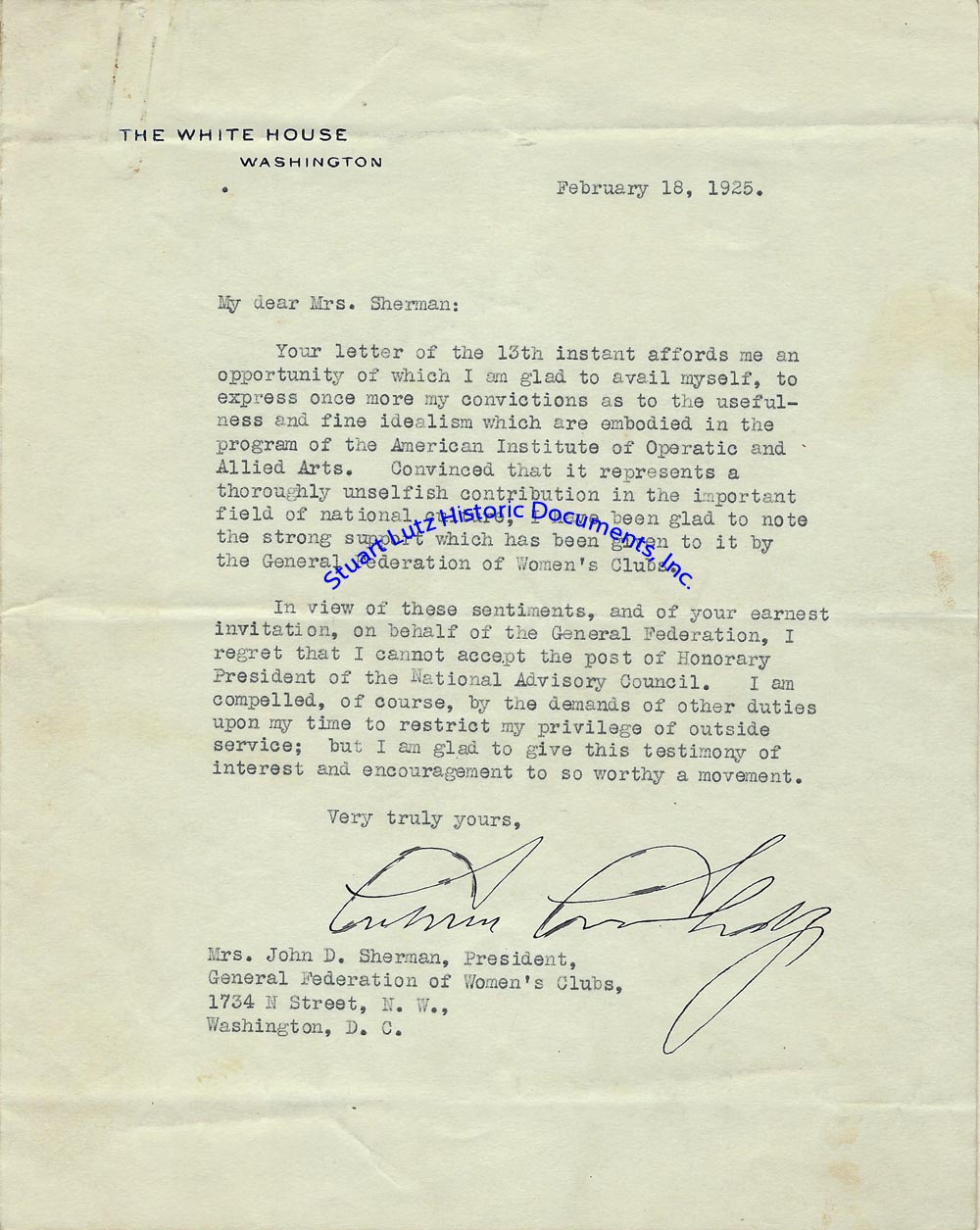
|
|
| |
| |
 GEORGE B. COTRELYOU GEORGE B. COTRELYOU |
|
|
|
|
| |
Price: $125.00 |
Stock# 184 |
| |
PRESIDENT McKINLEY’S SECRETARY GEORGE CORTELYOU WRITES THAT “OWING TO HIS ENGAGEMENTS THE PRESIDENTS FOUND IT IMPOSSIBLE TO AVAIL HIMSELF”
GEORGE B. CORTELYOU (1862-1940). Cortelyou was secretary to Presidents McKinley and Teddy Roosevelt. He was later appointed Postmaster General, Secretary of the Treasury, then worked for Consolidated Edison.
TLS. 1pp. 5 ½” x 9”. April 7, 1900. Washington. A typed letter signed “Geo B Cortelyou” to “Major J.B. Pond”: “Your letter of the 5th instant addressed to Secretary Porter has been received during his absence from the city. In reply I beg leave to state that owing to his engagements the Presidents found it impossible to avail himself to the thoughtful courtesy which you were good enough to extend to him for Friday afternoon. Assuring you of the President’s appreciation of your courtesy…”. The letter has a small margin chip on the left side and some signature skipping, but is in very good condition overall. |
184

|
|
| |
| |
 DWIGHT EISENHOWER DWIGHT EISENHOWER |
|
|
|
|
| |
Price: $1,500.00 |
Stock# 5932 |
| |
PRESIDENT DWIGHT EISENHOWER THANKS LEADER OF NATIONAL COUNCIL OF CHURCHES DURING THE HUNGARY AND SUEZ CANAL CRISES: “YOU MAY BE CERTAIN THAT THE UNITED STATES GOVERNMENT WILL CONTINUE ITS EFFORTS, WITHIN THE UNITED NATIONS AND IN ITS RELATIONS WITH OTHER GOVERNMENTS, TO FURTHER THE DEEP DESIRE OF THE AMERICAN PEOPLE THAT CONDITIONS OF TRUE AND LASTING PEACE BE ESTABLISHED IN THE WORLD”
DWIGHT D. EISENHOWER (1890-1969). The Thirty-Fourth President, Eisenhower was an Allied commander in World War II, and ordered the Normandy invasion. He was elected President in 1952 for two terms.
TLS. 1 pg. 8” x 10”. November 30, 1956. The White House, Washington. A typed letter signed by “Dwight D Eisenhower” to “Reverend Eugene Carson Blake, D.D.”: “Thank you very much for the telegram you sent recently on behalf of the National Council of Churches of Christ in the United States of America. Your comments on the policy of the United States Government in the Hungarian and Near East crises, with particular reference to the handling of these issues in the United Nations, were heartening ones. These two grave situations have represented an urgent opportunity for the United Nations to marshal the strength of universal moral forces on behalf of the rule of international law and justice. Action taken in the United Nations has eloquently revealed the deep-seated longing among the nations for an establishment and maintenance of peace, and the universal desire that the independence and integrity of nations be maintained and respected. In the forum of the United Nations we must press our search for solutions of these and other problems which confront the community of nations. I am most appreciative of the role of the churches in support of the United Nations and on behalf of those who suffer and are in want as a result of international calamities. You may be certain that the United States Government will continue its efforts, within the United Nations and in its relations with other Governments, to further the deep desire of the American people that conditions of true and lasting peace be established in the world”. President Eisenhower sent this letter to Eugene Blake, the leader of the National Council of Churches of Christ in the United States of America. Blake was a prominent Presbyterian leader who served as President from 1954-1957 and later was a participant in the March on Washington. The NCC is an interdenominational partnership of Christian faith groups in the United States that often spoke forcefully about promoting peace in U.S. foreign policy. The two crises that Eisenhower refers to, both in 1956, were the Hungarian Revolution, which saw the Soviet Union violently invade and suppress Hungary’s new reformist government, and the Suez Canal Crisis, which saw Great Britain, France, and Israel launch a joint operation to retake the Suez Canal after Egypt’s Nasser nationalized it. The actions by Eisenhower and the United Nations in resolving both crises were supported by many, like Blake, but also criticized by many in the U.S. and around the world. This was especially true as Eisenhower and the United Nations sat back while the Soviet Union killed over 6,000 Hungarian soldiers and civilians and displaced over 200,000, which was seen as hypocritical given American action in Korea and Vietnam. Regardless, this letter is an important reminder about the influence the NCC had as a Christian advocacy body and Eisenhower’s role as the leader of the internationalist and institutionalist wing of the Republican Party in the decade after World War II. |
5932

|
|
| |
| |
 GERALD FORD GERALD FORD |
|
|
|
|
| |
Price: $200.00 |
Stock# 4162 |
| |
GERALD FORD SIGNS A TIME TO HEAL
GERALD FORD (1913-2006). Ford was the Thirty-Eighth President.
SB. 6 ½” x 9 ½”. 454pg. No date. No place. A Time To Heal signed “Gerald R. Ford” on a Presidential book plate attached to the first free endpage. It has a fine dustjacket with light sunning to the spine and a couple short tears,, and the tight book is in extremely fine condition overall. |
4162
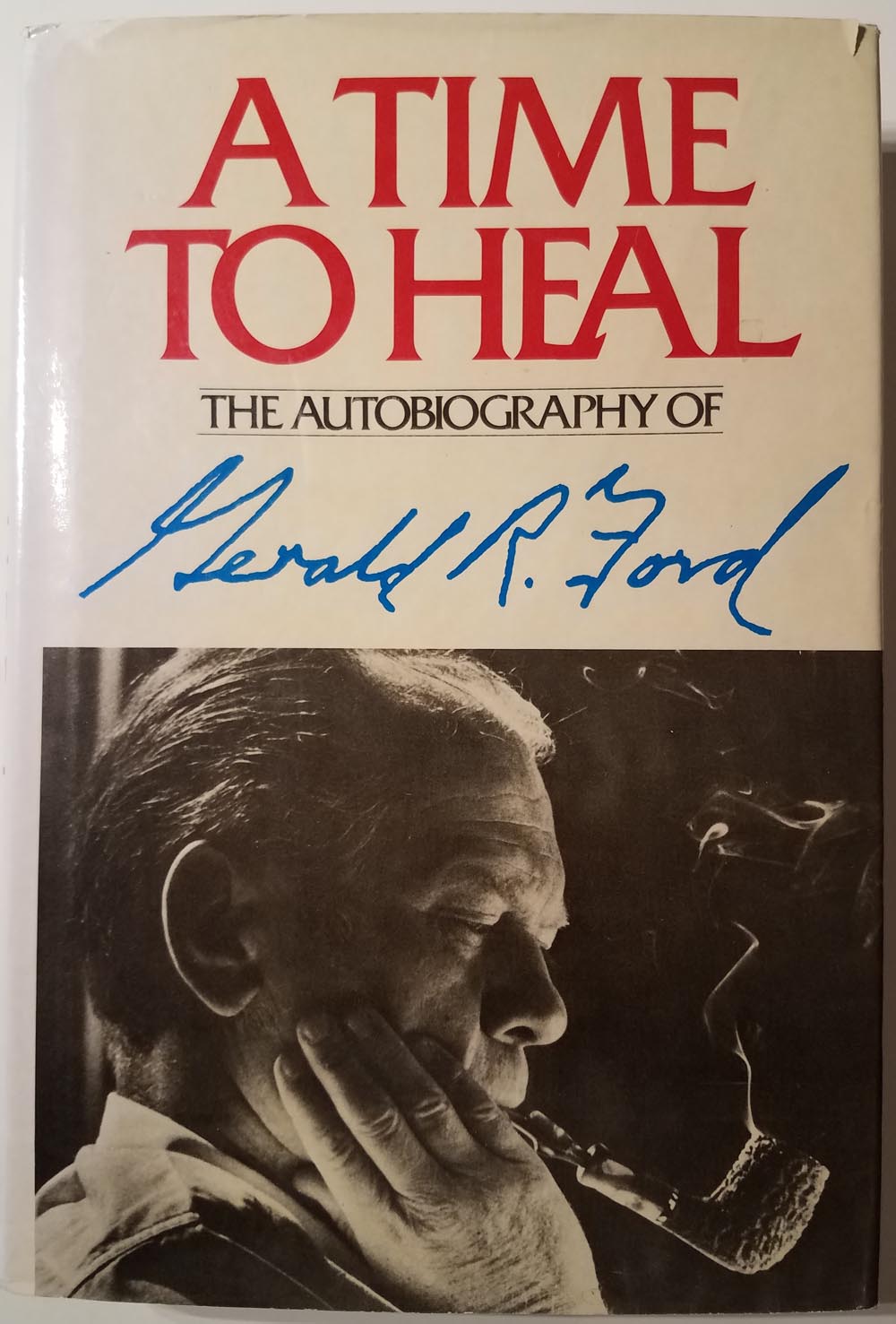
|
|
| |
| |
 GERALD FORD GERALD FORD |
|
|
|
|
| |
Price: $200.00 |
Stock# 6599 |
| |
CONGRESSMAN GERALD FORD STATES THAT SENATOR ARTHUR VANDENBERG HAD THE GREATEST INFLUENCE ON HIS CAREER
GERALD FORD (1913-2006). Ford was the Thirty-Eighth President.
TLS. 1pg. 7” x 9”. March 29, 1968. Washington. A typed letter signed “Jerry Ford” as Congressman. He communicated on House of Representatives letterhead: “…In answer to your question: ‘Who was the person that you consider to have exercised the greatest influence upon your professional career?’, I would reply Senator Arthur Vandenberg. In answer to your second question: ‘Why have you selected this person?’, I would state that he was an inspirational leader who was thoughtful, courageous and a statesman who kept up with the ‘times.’…”. The letter is in fine condition. |
6599
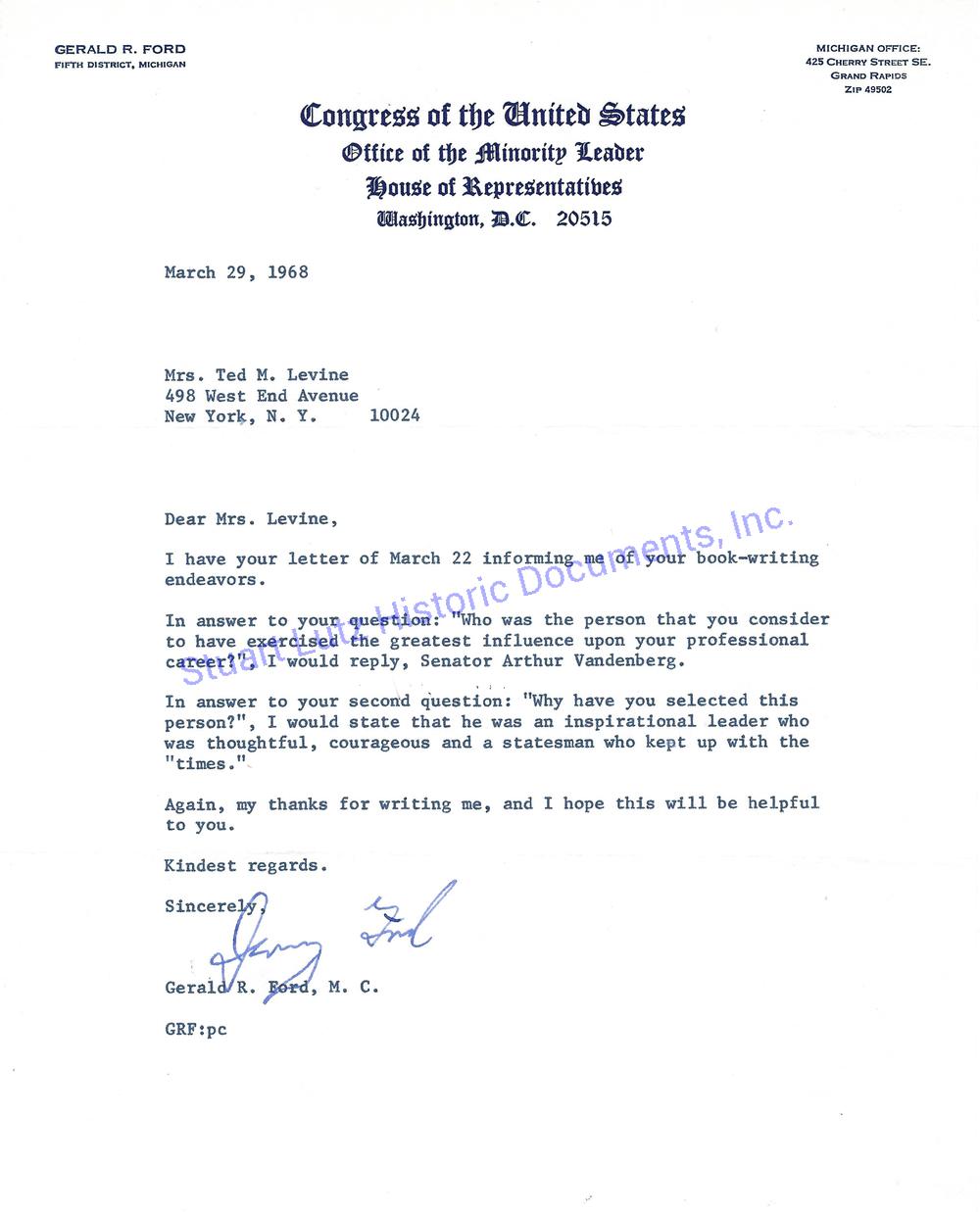
|
|
| |
| |
 GERALD FORD GERALD FORD |
|
|
|
|
| |
Price: $200.00 |
Stock# 4222 |
| |
PRESIDENT FORD SIGNS THE WARREN COMMISSION REPORT
GERALD R. FORD (1913-2006). Ford was the Thirty-Eighth President.
SB. 366pg. No date. No place. The Warren Report signed “Gerald R. Ford” on the title page. This Associated Press edition has blue boards, a slightly loose binding, and a small square toning patch on the signed page. It is in very good condition. |
4222
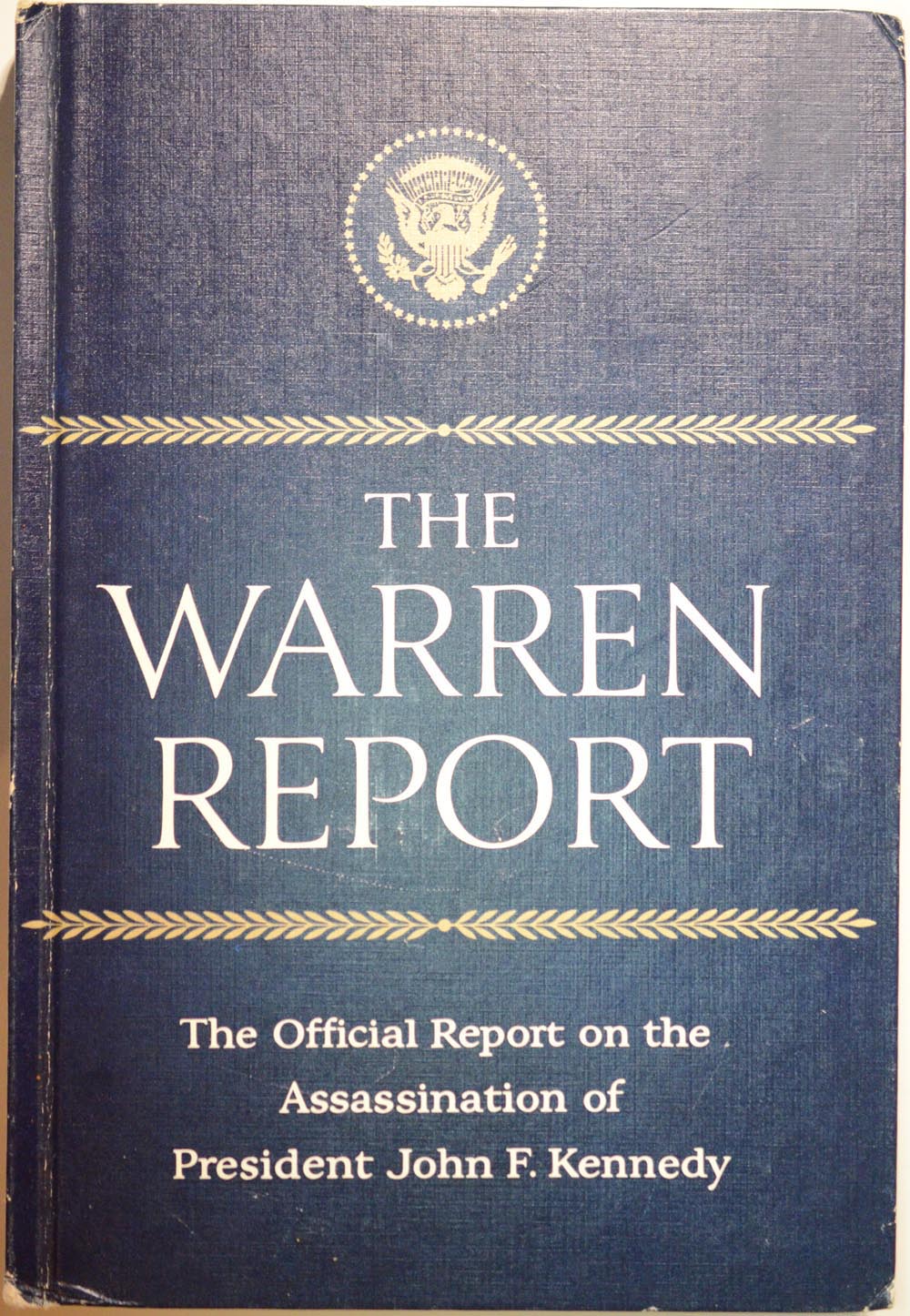
|
|
| |
| |
<Previous 6> <Next 6>
|
 |
